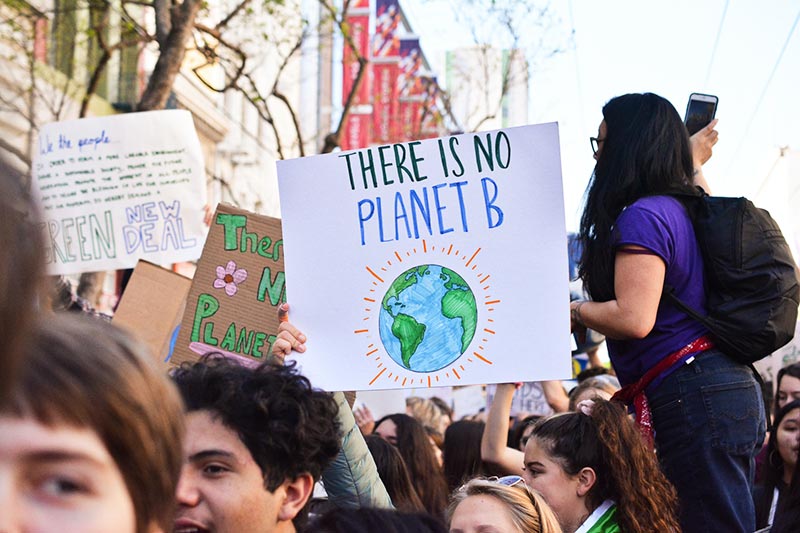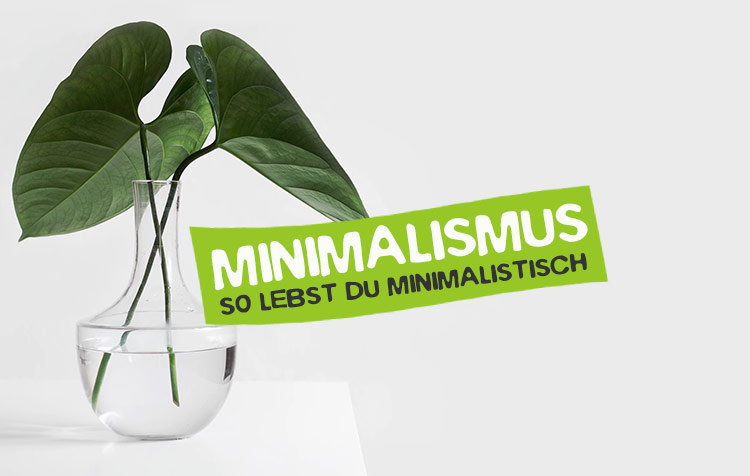What is meant by the rebound effect in the context of sustainability? If you're looking for an answer to this question, you've come to the right place. You often hear that "technological progress will save us" or that "technology will be ready very soon" as excuses for not even trying, live more sustainably.
But is the constant technological development of energy-saving light bulbs and ever more fuel-efficient cars really helping us out? Or does the belief that technology will sort it out ensure that the Environmental problems of our time only get worse and worse?
Such thoughts are absolutely justified: Because even if we develop more energy-saving technologies, our everyday lives are still becoming more and more energy-intensive.
In this article, I would like to show you why this psychological phenomenon is known as the "rebound effect" and how it plays a role in environmental economics and sustainability. I will also explain how it can be prevented or limited. Let's go!
Here is a brief overview of the article for you:
What is the rebound effect?
In environmental economics, the rebound effect (also known as the boomerang effect) describes the psychological phenomenon that the savings potential of efficiency improvements is not or only partially realized.
The main reason for this is the change in user behavior as a result of higher energy efficiency. Ultimately, people consume more energy than before, which increases the cancel the original savings (in whole or in part).
This effect is real and definitely political decisions! Because in the end, the rebound effect means that more energy is consumed than without the energy efficiency policy.
Ignoring the psychological phenomenon would therefore have a accelerating effect on the global warming - and that is the opposite of what an energy efficiency policy aims to achieve.
Direct rebound effect: Demand for a product increases because it can be offered at a lower price due to higher energy efficiency.
Example: energy-saving lamp instead of conventional light bulb. Energy-saving lamps reduce energy costs and are often left on longer precisely because of their lower power consumption. As a result, the energy savings are significantly lower than expected.
Indirect rebound effect: Consumers spend the energy costs saved on other energy-intensive activities.
Example: A family invests in an energy-efficient kitchen. From the energy costs saved, they treat themselves to a plane trip to the other side of the world.
What does the rebound effect mean in the context of sustainability and environmental protection?
The aim of increasing the energy efficiency of a product is to ensure that it consumes less energy in the end - to save energy costs and protect the environment.
In reality, however, it can be observed that the better energy efficiency also results in higher energy consumption. This is the rebound effect - and its connection with economics and ecology can be wonderfully explained using two examples, which economist Maja Göpel describes in her Book "Rethinking Our World (is available here*) has described.
Explained using the example of the VW Beetle
In the mid-fifties, a VW Beetle still consumed around 7.5 liters of petrol per 100 kilometers. At the end of the 1990s, when the more advanced VW Beatle came onto the market, it consumed almost exactly the same amount of gasoline - despite the 40 years of technical progress in between. Strange, isn't it?
But if you dare to make a comparison, you will recognize that the VW Beatle has its PS value tripled, its maximum speed increased from 110 km/h to 160 km/h and its Weight increased by almost half a ton has.₂
The further development of the VW Beetle shows in an amazing way that the lower consumption exchanged for more power instead of preserving the environmental benefit. An action that is representative of our current way of doing business.
Explained using the example of the light bulb
At the end of the 19th century, the light bulb first found its way into the households of wealthier people. At that time, the Most energy still in heat and only a small proportion was converted into light. Compared to gas lamps, however, it was already a real advance at the time.
Over time, the glowing carbon filament was replaced by a tungsten filament, which shone much longer and much brighter. The light bulb needed only a quarter of the electricity and thus became more efficient. Electricity suppliers were afraid that their business would collapse as households consumed less energy.
How can the rebound effect be prevented or contained?

The rebound effect is therefore a massive problem on the way to a more sustainable lifestyle with significantly lower consumption natural resources.
It is clear that each and every one of us has to take care of our own Reduce ecological footprint must. Fear of having to "do without everything" in the futurebut nobody has to. Even with clearly lower resource consumption can lead an equally happy life.
The Efforts to minimize raw material and energy consumption by the way, is called Sufficiency. But we can, of course, do more than just sweep in front of our own front door.
It also helps, Putting pressure on politics. For example, by participating in demonstrations or Self-started or supported online petitions.
Maja Göpel explains in her Book "Rethinking our world "* for example, that the policy should be implemented through a CO2 tax can ensure that the energy service, which has now become cheaper due to an increase in efficiency, becomes more expensive so that people use it more consciously and sparingly again.
Environmental problems such as climate change could also be slowed down by CO2 emissions to be capped with political measures or they are to be reduced by a certain date.
Let's not misunderstand each other: Technological progress is a great thing and can also lead to more Sustainability in our way of life. But to achieve this, it must be geared towards growing the gross domestic product without exploiting nature. As ecological consequences have been largely ignored up to now, we ourselves have caused the biggest environmental problems of our time.
The rebound effect: a dangerous, psychological phenomenon!
Our technologies are becoming increasingly efficient, but a Absolute decoupling of economic growth and resource consumption does not take place. On the contrary, resource consumption is increasing and will continue to do so.
A Change in our way of life is inevitable. Each of us can and must do our bit. And we can do this without having to "tighten our belts".
The rebound effect is thus both a phenomenon and a problem. But instead of being afraid of change and high prices, we should rather focus on the fact that it is fundamentally financially viable to own your own Reduce resource consumption.
In the end, everyone benefits - not least their own Children, grandchildren and all future generations - if we take the rebound effect seriously and take it into account in political and economic decisions.
"We are living in dangerous times. Men control nature before they are even able to control themselves."
Albert Schweitzer (more at Environmental protection quotes)
Do you have any questions or suggestions about this phenomenon in environmental economics? Then write me a comment!
Stay sustainable,

PS: Take a look around the Environmental Knowledge Blog around! Learn, for example, what is meant by sustainability in the context of the Externalization of Environmental Costs understands.
References:
₁,₂ Maja Göpel: Unsere Welt neu denken - Eine Einladung, Ullstein Verlag, Berlin, 12th edition 2020, pp. 98 - 105.







